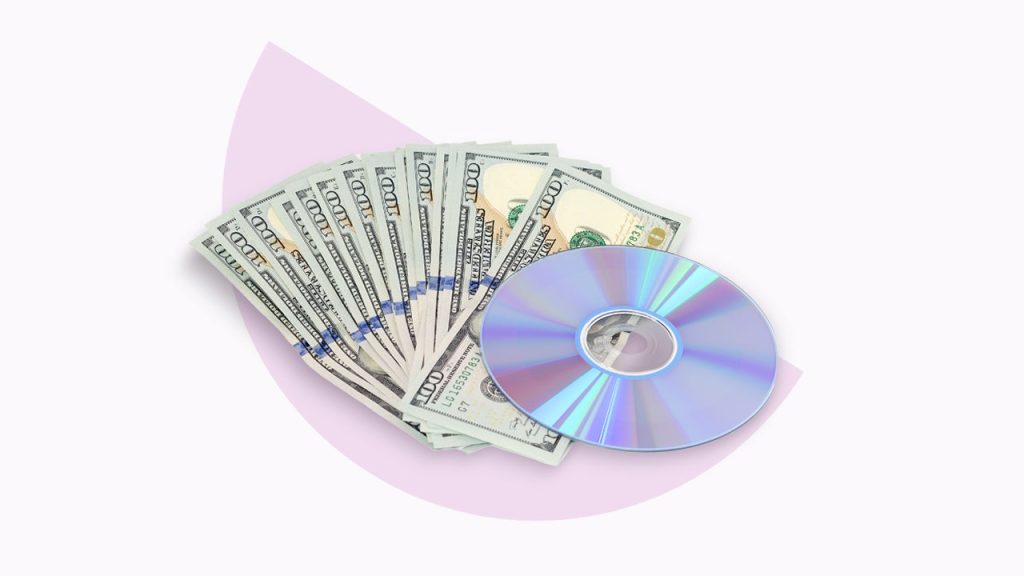It’s not always easy finding competitive yields if you own a business. A business certificate of deposit (CD) can be a great way to earn a fixed annual percentage yield (APY) on money you can put into an account for a specified term.
This page will provide you with some of the top yields available for your business.
Bankrate’s picks for the top business one-year CDs
Note: Annual percentage yields (APYs) shown are based on a $25,000 balance and as of Jan. 15. They may vary by region for some products. Bankrate includes only Federal Deposit Insurance Corp. (FDIC) banks or National Credit Union Administration (NCUA) credit unions in its listings. Relationships CDs weren’t considered in this list.
A closer look at the top one-year business CDs
-
APY: 4.50%
Started in 1934, Suncoast Credit Union is the largest credit union in Florida, and it has more than 1.2 million members. The credit union offers a variety of personal and business deposit accounts, including both standard and jumbo business CDs.
-
APY: 4.35%
America First Credit Union is open to those who live, work, worship, volunteer or attend school in certain areas of the Western U.S. It offers a variety of personal and business deposit accounts, loans and credit cards.
-
APY: 4.40%
Founded in 2008, Live Oak Bank is an online-only institution that offers various deposit products to consumers and businesses. These include checking accounts, savings accounts and CDs, some of which don’t require a minimum opening balance or charge monthly service fees.
-
APY: 4.20%
First Internet Bank has been around since 1999, and it describes itself as the first federally insured bank to operate entirely online. It offers a full suite of checking, savings, money market accounts and CDs to both businesses and consumers.
-
APY: 3.90%
EverBank is a full-service bank that serves customers in all 50 states, although most of its branches are located in Florida. It offers personal and business CDs, as well as checking, savings and money market accounts
-
APY: 3.55%
Membership in First Tech Federal Credit Union is open to those with certain ties to the state of Oregon, to those who work for a partner company or to those who meet other criteria. It offers a range of deposit products, credit cards, loans and insurance policies.
What is a business CD?
While it’s a deposit account designed specifically for a business, a business CD typically has many of the same characteristics of a personal CD. These often include an APY that’s guaranteed for the duration of the term and a penalty for early withdrawals.
Like personal CDs, business CDs are usually available in a variety of term lengths and may earn higher rates than those you’ll find from high-yield savings accounts. A bank may require a larger minimum opening deposit and pay different APYs for its business CDs than its personal CDs, although this isn’t always the case.
What to look for in a business CD
- Rates
-
You want to try to find a competitive yield for your money. As a business, it’s worth checking the bank down the street to see if it has a competitive yield. (And it might have a competitive yield through a relationship rate.) But often online banks have the most competitive CD yields.
- Fees
-
The early withdrawal fee is going to be the main fee to know before opening a business CD. This way you know what the worst-case scenario is if you have to break a CD term early.
- Branch access
-
If your business accepts cash, you might prefer using a savings or checking account at a local brick-and-mortar bank — and it’s possible that bank offers a competitive relationship rate on its business CDs. However, if your local bank doesn’t offer a high APY on a business CD, it’s probably worth looking elsewhere for a better rate, including at online banks.
- When you’ll need the money
-
You’ll probably want to consider a business savings account instead of a business CD if you don’t know the time horizon for this money or if you think you’ll need to use it soon. This will save you from incurring an early withdrawal penalty.
When selecting a business CD, look for a competitive rate and the right term for your business so you can make the most of your money.
— Mark Moroz
Head of Deposits and Payments, Live Oak Bank
Pros and cons of business CDs
Like personal CDs, business CDs typically come with various potential benefits and downsides that should be weighed before you decide if such an account is right for you.
Pros
- APYs that remain high in a falling-rate environment: If your business CD has a fixed rate, you’ll continue to earn the same APY until the CD matures, even if the going rates drop on new CDs.
- APYs that may be higher than high-yield savings accounts: It’s possible to find a business CD that earns a higher rate than you’ll get from a business savings account. However, this isn’t always the case, so it can pay to research rates on different types of business deposit accounts — CDs, savings accounts and money market accounts — before putting your funds in one.
Cons
- APYs that are locked in during a time of rising rates: While you’ll benefit from a fixed-rate CD in a falling-rate environment, you may regret locking your money in a CD should rates rise on deposit accounts in the meantime.
- Limited availability: While it’s not difficult to find personal CDs at most banks, it’s less common for banks to offer business CDs. As such, you might need to look outside of your personal bank for a business CD.
Methodology for Bankrate’s best business CDs
Bankrate’s editorial team receives no direct compensation from advertisers, and our content is fact-checked to ensure accuracy. Our editorial and research teams analyze more than 100 widely available financial institutions, made up of the biggest banks and credit unions, as well as a number of popular online banks.
Account minimums, monthly service fees and ATM charges are some important things to consider when choosing a savings account. It’s easy to find a savings account that doesn’t charge fees and has minimal balance requirements. Many online banks offer them, and they are a good fit for many consumers.
Choosing a bank or credit union that’s backed by the federal government will ensure your money is safe. Be sure to follow FDIC and NCUA limits and guidelines.
These financial institutions are featured in our rate research: Alliant Credit Union, Ally Bank, Amerant Bank, America First Credit Union, American Express National Bank, Bank5 Connect, Bank of America, Bank of the West, Barclays, Bask Bank, BECU (Boeing Employees Credit Union), Bethpage Federal Credit Union, BMO Bank, Bread Financial (formerly Comenity Direct), BrioDirect, Capital One Bank, Chase Bank, CIBC USA, CIT Bank, Citibank, Citizens, Citizens Bank (Rhode Island), Comerica Bank, Credit One Bank, Customers Bank, Delta Community Credit Union, Discover Bank, Emigrant Direct, EverBank (formerly TIAA Bank), Fifth Third Bank, First Citizens Bank, First Internet Bank, First Tech Federal Credit Union, FNBO Direct, Golden 1 Credit Union, Huntington National Bank, KeyBank, LendingClub Bank, Limelight Bank, Live Oak Bank, M&T Bank, Marcus by Goldman Sachs, Morgan Stanley Private Bank, MySavingsDirect, Navy Federal Credit Union, NBKC Bank, PenFed Credit Union, PNC Bank, Popular Direct, Quontic Bank, Randolph-Brooks Federal Credit Union, Regions Bank, Salem Five Direct, Sallie Mae Bank, Santander Bank, SchoolsFirst Federal Credit Union, Security Service Federal Credit Union, State Employees’ Credit Union, Suncoast Credit Union, Synchrony Bank, TD Bank, Truist Bank, UFB Direct, U.S. Bank, USAA Bank, Vio Bank, VyStar Credit Union, Wells Fargo and Zions Bank.
Read the full article here









